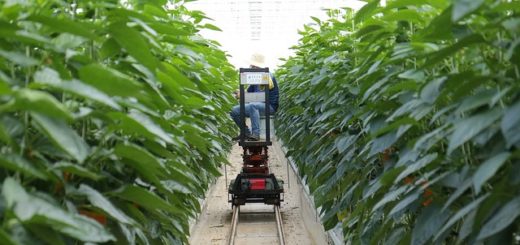Consultancy: Local Research for implementation of CTWWC Household Survey
Changing the Way We Care (CTWWC) is an initiative designed to promote safe, nurturing family care for children: those reunifying from residential care institutions or those at risk of child-family separation. This includes strengthening families and reforming systems of care for children, including family reunification and reintegration, development of alternative family-based care (in keeping with the United Nations Guidelines for the Alternative Care of Children). CTWWC is a consortium of Catholic Relief Services and Maestral International, and key partners like Better Care Network, Faith to Action, and others, joined by multiple donors. CTWWC is operating in the context of growing interest in care reform and as a result of a growing global understanding that institutional care of children is a significant problem that will be best addressed through collaboration between national, regional, and global stakeholders to develop alternative care systems supportive of family care.
A key part of the CTWWC theory of change is the flow of learning from the demonstration areas to the wider country, region, and internationally. CTWWC is committed to building evidence in key areas related to care reform, including outcomes for children and families, which is currently lacking in relation to reintegration, transitions to alternative family-based care, and prevention of separation, especially in low resource settings. In the design of CTWWC’s Monitoring, Evaluation, Accountability, and Learning (MEAL) plan, a focus was placed on tracking outcomes at the child and family level through routine monitoring and periodic evaluation. CTWWC’s third year of operation (FY21) includes plans for a “mid-term” review which presents an opportunity for more in-depth data collection, analysis, and reflection.
CTWWC is planning to implement a household survey with CTWWC beneficiaries in Kenya and Guatemala who have received support as part of reintegrating children from residential care or because they have been identified as at-risk of family-child separation.
The household survey is being designed by the Boston College School of Social Work in collaboration with CTWWC in Kenya and Guatemala.
The research questions to be answered by the household survey include:
- How do children and their caregivers view their care journey?
- What factors do children and their caregivers think have helped children to feel safe and nurtured in family care? What do they think have been the obstacles?
- What aspects of family strengthening support do caregivers think have helped them to care for and provide for their children?
- How has the wellbeing of children and caregivers changed as a result of their engagement with CTWWC?
In addition, quantitative results are required to respond to CTWWC outcome indicators:
- What proportion of at-risk children in vulnerable families and children and young people who have been reunified or placed in family-based care or in independent living feel safe and nurtured in the family?
- What proportion of caregivers who received economic support have subsequently been assessed as being economically stable?
- What proportion of caregivers who completed training in positive parenting have subsequently been assessed as practicing positive parenting skills?
Methodology
The consultant will work closely with Boston College on the design and rollout of the household survey. The data collection will target all the children and their caregivers who have received support as part of reintegrating from residential care or had been identified as at-risk of family-child separation. The data collection will be done at the project sites – Kisumu, Kilifi, and Nyamira Counties with study participants spread throughout the counties. The total targeted respondents are summarized below. The survey is projected to start in mid-August 2021.
County
Targeted Respondents (children and their primary caregiver)
Kisumu: 155 (125 reunified children and 30 children receiving institutionalization prevention services)
Nyamira: 100 (30 reunified children and 70 children receiving institutionalization prevention services)
Kilifi: 180 (130 reunified children and 50 children receiving institutionalization prevention services)
Scope of Work for the Consultancy
The primary objective will be to implement the study protocol, resulting in the collection and management of high-quality quantitative and qualitative data. The data collection team will be responsible for identifying and training data collectors to implement the research protocol, including the administration of structured questionnaires and in-depth interviews among select beneficiaries in collaboration with the research partner (Boston College) and CRS. Additionally, it will be the data collection consultant’s responsibility to ensure the supervision of the data collection staff, monitoring incoming data, and ensuring that high-quality data is collected and managed appropriately.
Activities
1. Undertake field testing of tools
- Participate in regular calls and meetings with CTWWC and Boston College to plan for and report on data collection and training activities.
- Undertake CITI ethics training (to be confirmed)
- Recruit and manage enumerators for field testing and arrange for and co-facilitate their virtual training with Boston College.
- In collaboration with CTWWC and Boston College, undertake field testing (member checking/validation, cognitive testing, and piloting) of survey tools
- Transcribe and translate to English member checking and cognitive testing interviews (x5 children)
- Consolidate and check the quality of the pilot survey data (x30 children)
- Provide feedback to Boston College on possible adaptations need.
2. Undertake data collection
- Recruit and manage local enumerators for survey implementation
- Coordinate with CTWWC on access to tablets and setting up software for data collection
- Arrange and co-facilitate training of enumerators with Boston College.
- Coordinate closely with CTWWC and Boston College on the development and implementation of the logistics management plan:
- determine the team structure for each survey team, determine site assignments for each survey team,
- complete administrative and logistical preparations necessary to begin the conduct of the survey including training and data collection activities,
- provide sufficient printed copies of the survey tools
- distribute all supplies and materials needed to interviewers and supervisors,
- Work with CTWWC Kenya team to arrange for transportation of the field teams for all data collection activities as per the data collection schedule.
- Oversee data collection, ensuring the timely collection of high-quality data through field supervision, quality checks, and coordination with CTWWC and Boston College.
- Maintain fieldwork control sheets and field notes from all enumerators
3. Consolidate, translate, and clean data
- Consolidate and check the quality of survey data.
- Undertake any necessary translation of data.
- Share complete datasets with CTWWC in-country team and provide de-identified data to Boston College and provide any feedback or clarifications as necessary.
- Share field notes/report on the implementation of data collection.
4. Findings validation
- In collaboration with CTWWC, organize a participatory workshop (in each field location) for member checking/validation of preliminary results
- Transcribe, translate, and check the quality of workshop discussions
- Review draft findings report and provide feedback
Deliverables
- Fieldwork and training plan (building on materials provided by Boston College)
- Member checking transcripts
- Cognitive testing interview transcripts in English
- Pilot survey dataset in English
- Informed consent forms for all participations
- Full survey dataset in English
- Field notes/report
- Validation workshop notes/report
- Feedback on draft findings
Timeline
1. Activity :Orientation to CTWWC and household survey methodology Planning for fieldwork
- Deliverables: Fieldwork plan
- Estimated days: 2 days
- Timeline: August 2021
2. Activity : Field testing: recruitment of enumerators, training, cognitive testing, and pilot testing tools
Deliverables:
- · Member checking transcripts
- · Cognitive testing interview transcripts in English
- · Pilot survey data set in English
Informed consent forms for all participants
- Estimated days: 8 days
- Timeline: August 2021
3. Activity : Survey data collection: recruitment of enumerators, training, data collection planning and supervision, including quality checks, translation, cleaning, and storage
Deliverables:
- Informed consent forms for all participants
- Full survey data set in English
- Field notes
Estimated days: 12 days
Timeline: August – September 2021
Role of CTWWC and Boston College
CTWWC and Boston College staff will be responsible for the following activities:
- Development of data collection protocols and relevant documents
- Lead IRB submission and approval processes
- Provide technical leadership on the implementation of the data collection protocol
- Design training of the data collection teams
- Support planning of fieldwork and identification of household locations
- Hold regular meetings with the data collection team to know progress in data collection and address any issues/ troubleshooting if needed
- Safely store datasets and data collection materials
- Conduct data analysis and complete final report and other publications
- Support planning and organization of validation workshops
- Organize and coordinate results dissemination events
Required qualifications of local research consultant
The consultant/team lead should have:
- A master’s-level education in Public Health, Sociology, or a related field (Ph.D. preferred)
- A proven record of leading the collection of quantitative and qualitative data through surveys and semi-structured qualitative interviews
- Extensive experience in training and managing multiple data collection teams and ensuring data quality
- Experience collecting and managing longitudinal data preferred
- Experience in conducting research with vulnerable populations, including children
- Experienced in the use of ICT4D solutions in data gathering
- A strong record of following research ethics procedures, including informed consent and maintaining participant confidentiality
- Strong English language skills (written and oral)
Submission requirements and process
Applicant(s) must submit the following documents:
- Capability statement: How the consultant or firm is structured for the assignment, description of previous experience conducting longitudinal studies, mixed-methods studies, and digital data collection; and description of research team structure, the role each staff will play including the CVs of the personnel who will take part in the consultancy.
- Technical Proposal: The consultant’s understanding and interpretation of the Terms of Reference (TOR), Description of how deliverables and milestones will be achieved. i.e. a detailed methodology on how the quantitative & qualitative data collection will be done including transcription. The technical proposal should not exceed 25 pages.
- Financial proposal: Itemized budget proposal in local currency (Kenya shillings) with a clear breakdown of the consultancy fees and operational costs as per delivery table sections. References: Names, addresses, telephone numbers of three organizations that you have conducted similar assignment for, within the last three years, that will act as professional referees
How to apply
Applications should be submitted to the CRS Kenya Procurement Unit through the following email address crskenya-procurement@crs.org with a reference to “Local Research Consultancy for implementation of CTWWC Household Survey” in the subject line. Complete applications to be received no later than 5th August 2021 by close of business.
CRS’ recruitment and selection procedures reflect our commitment to protecting children and vulnerable adults from abuse and exploitation.








